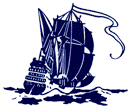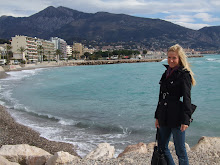I've been staying on the capital island of Male', a two square kilometer concrete jungle home to over 100,000 people. Crowded doesn't even begin to describe it. Vastly different than any city I've visited before, its relative isolation has allowed it to retain a pure, fascinating culture. The population is 100 percent Mulsim, which has been an interesting experience for me, especially being the only westerner in town. Although curious, no one seems too bothered by my presence.
I entered a tea shop for lunch the other day and quickly noticed I was the only female in the small room. A young man happily took my order and seated me at one of the few remaining seats of a long cafeteria-style table. Joined by several dozen Maldivian men, I ate platefulls of kuli boakiba, gulha and papya. Aside from the stares and lots of friendly smiles, life went on as normal in the Dawn Cafe. I found out later that women don't traditionally enter tea shops, as it is a place for men to talk about "man stuff." (Although one woman told me she chooses not to go out of the sheer lack of sanitation- a certainly plausible excuse.) My obvious inablilty to understand Divehi must have posed little threat to their confidential conversations.
Of course I am here as, what my mom likes to refer to as, a "trash ambassador." So in order to seek out rubbish, I took a ferry to a nearby island and scoped out the marine debris situation. And on Vilingili island in the North Male' Altoll, I found the most impacted beaches I've seen so far. From couches to Q-tips, and toothbrushes to toilet seats, I entered a whole new realm of beach cleaning. Here's just a portion of the list of items I collected on 55 meters of beach:
-1 fluorescent light bulb
-11 glass bottles (including 2 empty bottles of Tobasco sauce)
-23 diapers (Maldivians will not throw human feces into a garbage dump, so instead, diapers are traditionally thrown into the sea.)
-25 shoes
-1 twin-sized mattress
-21 cardboard containers of Milo drink
-1 mother board of a computer
-2 glass jars of Nutella
-1 foam cushion
-36 plastic wrappers from instant noodles
-1 wine cork
Although, far more interesting than the items I collected, was the reaction I received by passerbys. As I dragged the ever-growing trash bags along the beach, small crowds began to form. My foreign appearance added to such odd behavior was certainly a sight for curious locals. Seemingly too nervous to approach, they stared from a distance, some even held their children so as to prevent them from wandering my way. Smiling at the crowds, I continued cleaning. Typically, after I've finished cleaning a stretch of beach, I will lay all the trash back out and sort it in order to record what's been collected. So not only did this crazy white woman spend hours picking up trash on an arbitrary beach, but now she's dumping it all back out and sitting down to admire it. As you'd expect, this really seemed to puzzle people.
Finally, a young guy, Makif, who I'd met earlier in the day, approached me and my piles of trash. He laughed as he told me that the whole town wanted to know what I was doing. Even the police had been called. Once he'd approached, the apprehensive crowds became a bit more confident and came to get the story. I attempted to explain myself, although with the language barrier it was tough. The locals laughed as they relayed the explanations they'd developed for my actions: some assumed I was an immigrant worker the government was paying to clean the town, some thought I'd lost something, one woman even bluntly admitted, "we just thought you were crazy." A few volunteers helped lug the trash to the local dump and I set on my way back to Male'. Even if I am remembered as the crazy trash lady, I hope that I was able to leave behind some sort of message that might make them think before tossing their rubbish to the sea.
 A message to users to keep the beach clean on the island of Hulhualme
A message to users to keep the beach clean on the island of Hulhualme
















